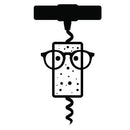The tale behind Domaine Ilarria, secluded from the rest of the world by the idyllic Pyrenees mountains, comes with more than might meet the eye. From Japanese Agronomy, centuries-old land disputes, and an abbey located at the highest point of an ancient pilgrimage route, Domaine Ilarria’s terroir retains a history we just can’t keep from telling.
Nestled in lush rolling hills just 10 miles north of the French-Spanish border, Domaine Ilarria, whose name derives from Iri (site) larria (land) in the local Euskara (an ancient language spoken exclusively in this region), takes respect for terroir to the next level.
Basque Country or ‘Pays Basques’ as the French call it, is much more than just a geographic region. Certain theories suppose that the Basque population, which boast cultural customs decidedly separate from their surrounding areas, may be the least assimilated remnant of the Paleolithic inhabitants of Western Europe. Evidenced by their language, which predates all romance languages, the Basque peoples are an entity that traverse national borders, choosing instead to tie themselves to their land and traditions.
This cultural region expands from South Western France into North Western Spain, where the Basque identity is so strong that they have been granted rights as a region autonomous from the Spanish Government. While the French have not gone so far as to autotomize the ‘Pays Basque’, the individualism and separatist sentiment is undoubtedly present. Winemakers are few and far between. Because in many cases their autonomous and semi autonomous status has prevented them from reaching international markets, much of the wine commerce is kept within the community. Domaine Ilarria, whose estate spans just 30 hectares (only 10 of which are planted with grapes), is in our case a wonderful exception.Their production nonetheless is exceptionally small.
Isolated from the rest of the world by the Pyrenees mountains, Domaine Ilarria makes wines that for all of their timelessness, surrender themselves to place with abandon. Peio inherited the land from his parents who inherited it from their vigneron parents, and has winemaking in his blood. Nonetheless, he is an agriculturalist at heart, and retains the estate’s 20 other hectares with diverse selections. Before taking over the family estate in 1988, he did stints in Bordeaux and Jurancon, but could not stay away from the Irouleguy region for long. Upon his return, he painstakingly terraced the limestone rich hills in order to better make use of the steep terrain.
Peio is a practitioner of Japanese agronomist and philosopher Masanobu Fukuoka’s, ‘do-nothing farming method.’ Fukuoka spent the majority of his life experimenting with the idea of "natural farming", and Peio, upon discovering his philosophies reworked his own viticultural approach to reflect these sentiments. This method is much harder than it sounds and the ‘laissez-faire’ take requires constant attention and maintenance in the vineyards. Peio's hand as a winemaker is similar, using minimal sulfur only when necessary he prefers to allow the grapes to speak for themselves and avoids manipulation.
Within the 10 planted hectares, Peio grows five different grapes gravitating towards regional varietals. Notably, Petit Courbu and Petit Manseng, both on the brink of extinction until recently, make up his exquisite Irouleguy Blanc. Petit Courbu adding subtle honey and citrus notes while Petite Manseng brings striking acidity and stone fruit to the equation. Being so close to Bordeaux, and sharing many climactic qualities, Peio's reds include Cabernet Sauvignon and Cabernet Franc as well as the lessor know Tannat. The later grape is known for it's intense tannic structure and its qualities seem to be ones that align well with this mountainous region: rugged, straightforward, and a little wild. Tannat's high tannic content means these wines are hyper age-able and only become more delicious as time goes on.
As evidenced from the land map proudly displayed on the domain’s website, the terroir not only boasts rich limestone soils but has many iron and copper deposits, imbuing the wines with a rustic nose yet elegant finish. These soil deposits aren't the only thing significant about the property. The estate is located at the highest point on the route to the abbey of Roncevaux in the Navarre region and is frequented by swathes of pilgrims each year. Viewed from any angle, this land is something special. But don't let us have all the fun, try these wines for yourself and let us know what you think.





